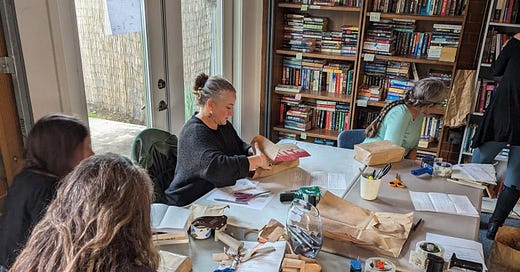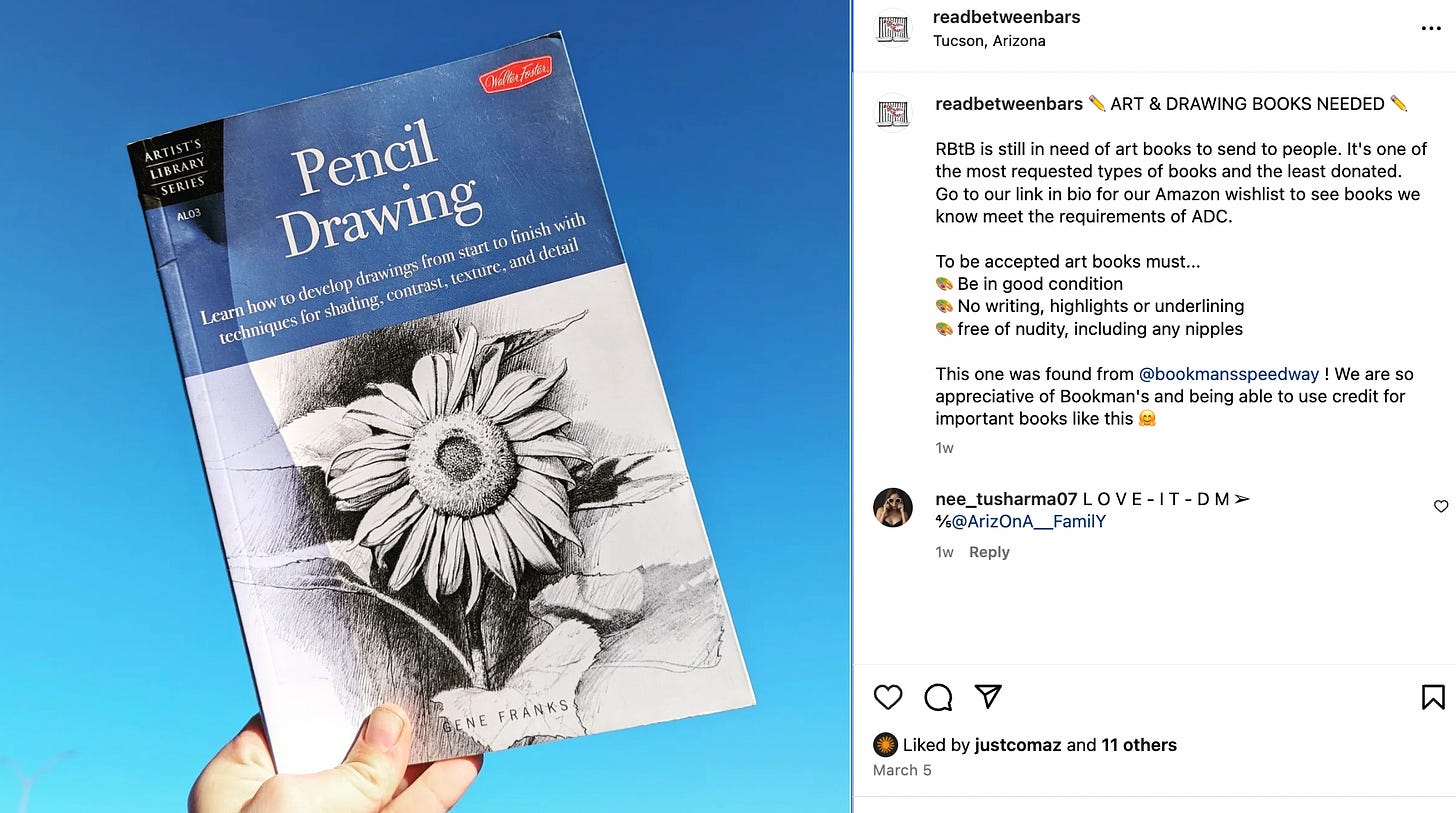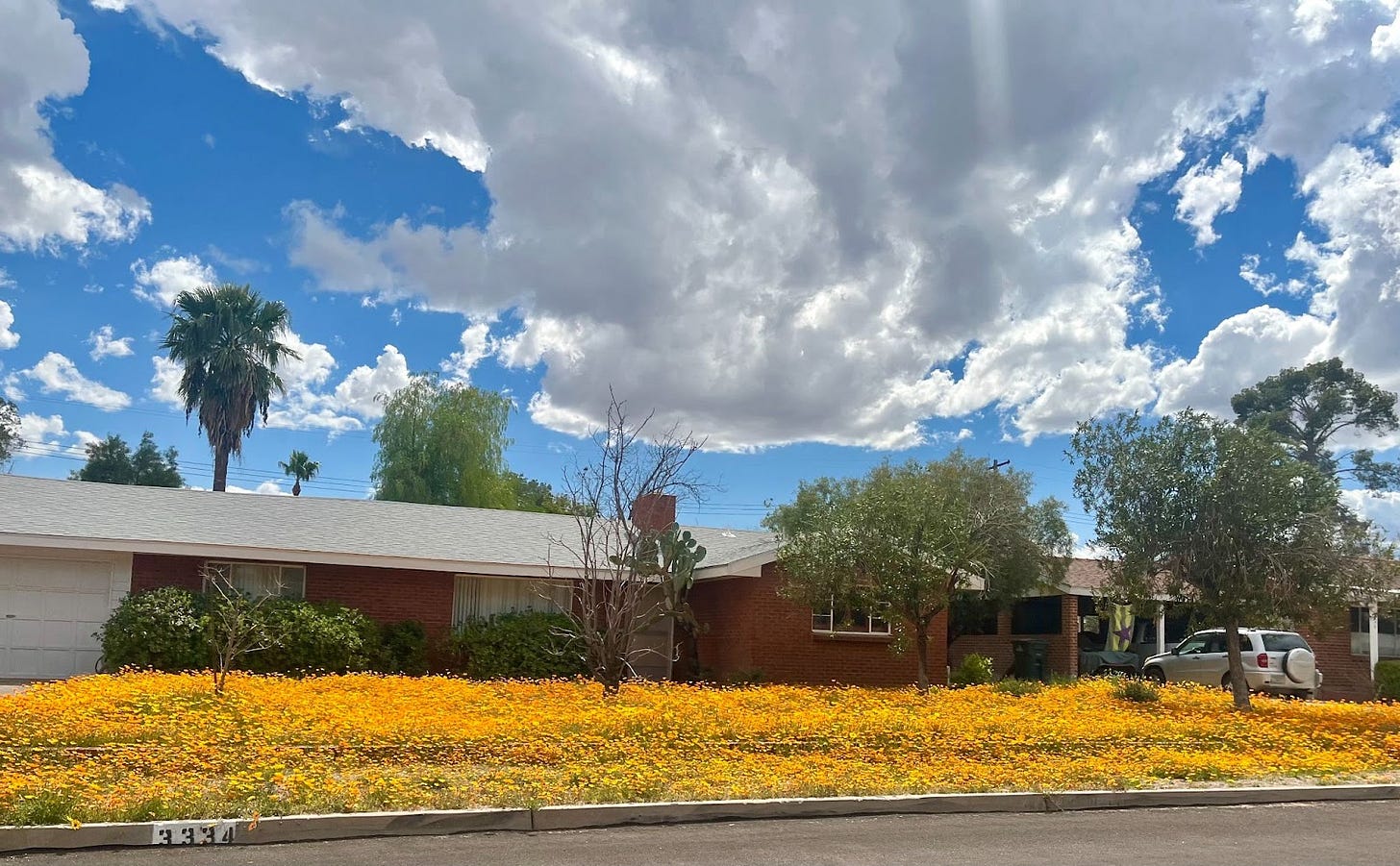The Solution Agenda: Filling incarcerated Arizonans' reading needs
Book banning isn't just for schools ... Until recently, Arizona prisons limited incarcerated people's access to books ... SALC joins asylum debate.
Book banning efforts have been increasing in recent years, with the 4,240 unique titles targeted for censorship last year marking the highest number ever documented by the American Library Association.
It’s a controversial issue and while most of the challenges focus on schools or libraries, there’s one area in which reading restrictions are even more prevalent: Prisons.
Many prisons limit access to books, but it’s hard to get a clear picture of how big of an issue it is, since policies vary by state and prison and there’s little oversight or tracking.
In addition to dictating what books incarcerated people are allowed to read, prisons also get to decide if and how they’re allowed to receive books that come from outside of the facility’s library, which until recently, was a big problem in Arizona.
But in October, the state’s new prison director changed an internal policy, which opened the doors for a Tucson nonprofit to get back to work shipping packages of books to people in Arizona prisons.
Read Between the Bars started in 2007 as a small group of individuals who wanted to help people in prison stay connected to the community and access resources that wouldn’t be provided by the prison.
The system is simple: The group fields letters from incarcerated individuals with a list of their topics and genres of interest. A person can receive up to three books every six months, and because prisons limit the amount of property each person can have the books are usually donated to the library when they’re done being read.
Over the years, the nonprofit has adapted to various Department of Corrections policy changes. But in 2017, organizers noticed a large number of packages being returned by the prisons, according to outreach director and longtime volunteer Becca Fealk.
“We get charged for postage twice when the packages get mailed back, so that got very expensive for us. We run entirely on donations and don’t have a regular funding stream,” Fealk told the Tucson Agenda.
Starting with the women’s prison in Perryville, the mailroom staff began rejecting the group’s packages as a result of internal policy changes, and eventually all the other prisons adopted the same policy that unless a sender was an authorized distributor, they could not send books to prisons.
“Authorized distributors are more like Barnes and Noble and bigger publishers and companies where people have to pay for new books, and they have to be sent directly from the distributor. Ninety-nine percent of our books are used,” Fealk said. “We asked if we could get an exception as a nonprofit but got a lot of silence back from the department.”
Since the policy started under Director Charles Ryan, Fealk and others were hopeful when he retired that a leadership change would result in a policy change. Unfortunately for them, his successor David Shinn came from the federal prison system, which has a history of banning books.
The group’s attempts to speak with him about the issue went unanswered, but when Gov. Katie Hobbs appointed Ryan Thornell to the position following Shinn’s departure, the situation took an abrupt turn.
“He was immediately open to working with us and getting things back up and running,” Fealk said.
The initial conversation with Thornell happened last February and by October, the policy had been changed. And shortly after Read Between the Bars put out the word that they were going to start packing and shipping books again, they received 200 letters from incarcerated people eager to get their requests filled.
In January, the group sent off its first shipment of books in seven years, which included 40 packages that each contained three books. They’ve been regularly shipping books since, and as of Monday had sent out more than 264 packages containing 672 books.
“We’re grateful to make that happen again and for the administration to work with us,” Fealk said, adding that while books are a great resource for incarcerated people, they also provide a respite from prison life.
The most popular requests are thrillers, crime fiction, history books and the dictionary.
“Many people are interested in improving their writing skills or speak English as a second language,” Fealk said. “Or because Malcolm X talked about reading every day to improve his vocabulary.”
Business and financial planning books have also been popular this year, as have books about astrology, tarot and dream interpretation.
Volunteers meet twice a month to pack books to send to both federal and state facilities, typically completing between 60 and 90 parcels at each event.
But with more than 37,000 people incarcerated in Arizona prisons in 2023, the demand is far greater than the supply and the group has a steady stream of requests and is constantly updating their Amazon wishlist. They also accept donations of paperback books in good condition with no writing or highlighted text, and monetary donations are also more than welcome.
Volunteers use paper grocery bags to wrap books, in an effort to offset costs, and all donations go directly towards the purchase of books, postage and other packaging materials.
Fealk said that while she and other volunteers are happy to be back at work fulfilling its mission, it’s also satisfying to see Arizona on the right side of the increasing trend of prisons banning books.
“People should be concerned about this. We hear a lot about banning books for kids or banning topics because they’re taboo, but if people can’t get books, that’s a whole other issue,” Fealk said. “Director Thornell started to buck that trend and let this resource in. That’s really important for Arizona.”
Read Between the Bars is always looking for volunteers to join their bi-monthly packing parties. Learn more and sign up here. Donations of gently used paperback books can be dropped off at the University of Arizona Poetry Center.
Details emerging: After initially refusing to release it, County Attorney Laura Conover released a copy of the diversion agreement she signed with the State Bar, the Tucson Sentinel’s Dylan Smith reports. The agreement doesn’t provide specifics, but it does deal with conflict of interest, diligence issues and “conduct prejudicial to the administration of justice.” It came after former prosecutor David Berkman filed a complaint against Conover. Under the agreement, Conover has to complete a continuing legal education program and meet with the bar counsel to discuss rules of professional conduct. She says she has “not been found guilty of any ethical transgressions, and I have not admitted to any.” Berkman told the Sentinel “she cut a deal to avoid facing significant complaints of misconduct.” As for the delay in releasing a copy of the agreement, Conover said she did so after seeking “clear guidance that it could be properly released to the public.”
Maybe Tucson needs prickly: Tucson needs people like Steve Kozachik on the city council, Arizona Daily Star columnist Tim Steller writes. Kozachik was “prickly” and “unpredictable,” and a welcome contrarian on the council. Steller cautions that Kozachik’s replacement might be less willing to go against the “political drift” on the council. If that’s the case and the replacement follows the herd, Steller writes, it might be time to support a ballot measure that would get rid of Tucson’s hybrid election system and allow more “diversity of views and interests” on the council.
A step too far: Gov. Katie Hobbs vetoed a bill that would have changed how cities like Tucson can regulate housing, Capitol Media Services’ Howard Fischer reports. The Arizona Starter Homes Act got bipartisan support in the Legislature, but some Democrats, and the League of Arizona Cities and Towns, opposed it. In the end, Hobbs said “this expansive bill is a step too far and I know we can strike a better balance.” Hobbs cited concerns that higher housing density would make firefighters’ jobs harder, along with residential encroachment on military bases, which can lead to base closures.
Doing the leg work: If you’re having trouble keeping track of all the ins and outs of the University of Arizona’s financial crisis, and there certainly are a lot of them, the Arizona Luminaria’s Carolina Cuellar breaks down the recent developments for you in easily digestible chunks. The most recent development: the UA’s Office of Research, Innovation and Impact is cutting leadership positions.
Historic investment: The Cochise County Supervisors decided to spend $70,000 to clean up the Miracle Valley Bible College, Arizona Public Media’s Summer Hom reports. The bible college has a storied history in Cochise County. It was originally owned by evangelist A.A. Allen in 1958 and is now eligible to be listed on the National Register of Historic Places. But it fell into disrepair over the years. The plan is to fix it up and then auction it later this year. Allen’s granddaughter Rebekah Allen Jones is fighting to make sure the property gets the right care.
SALC calls for action: Until now, calls for the federal government to keep funding local efforts to support asylum seekers have largely come from elected officials, nonprofits, and religious groups. Now the Southern Arizona Leadership Council is joining them, while also calling for fewer asylum seekers to be released in Tucson. The group of 160 CEOs and community leaders said in a press release Monday the funding, which is set to expire at the end of the month, is needed to “avoid or mitigate the impending crisis of having thousands of men, women, and children each week left to fend for themselves” and overwhelm local public health and public safety resources.
4,633: The number of books banned in Arizona prisons as of 2022, according to a study by the Marshall Foundation.










